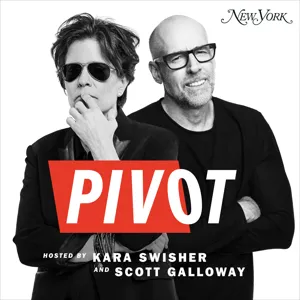Podcast Summary
Effective Teamwork for Web Development: Clear communication, shared goals, using tools like Sentry, and taking responsibility for mistakes are key components of effective teamwork in web development.
Effective teamwork is crucial for successful web development projects. Scott and Wes, from the Syntax channel, discussed their experiences and tips for working on a team, inspired by a Reddit post that highlighted the importance of respecting and communicating with teammates. They emphasized the importance of clear communication, setting shared goals, and being open to feedback. Scott shared that he considered himself a good team player but didn't have a solid understanding of best practices. Wes, who had more team experience, offered insights on the importance of clear communication and setting expectations. They also discussed the importance of using tools like Sentry to help identify and resolve errors efficiently. Sentry was highlighted as a valuable tool for developers, as it helps identify and resolve errors in real-time, saving time and preventing regressions. The discussion also touched on the importance of taking responsibility for one's mistakes and learning from them. In summary, effective teamwork is essential for successful web development projects. Clear communication, setting shared goals, using tools like Sentry, and taking responsibility for mistakes are all crucial components of successful teamwork.
Effective Communication and Collaboration in Software Development Teams: Maintain a respectful and productive work environment, understand each other's code choices, and communicate effectively to resolve conflicts and create better software.
Effective communication and collaboration are essential in software development teams. A Reddit post discussed a junior developer's frustration with a senior developer's code and their negative interactions. While it's understandable that different developers may have varying approaches, it's crucial to maintain a respectful and productive work environment. Century, a sponsor of the podcast, offers a solution for managing content and workflows through their platform. Sanity.io is an excellent choice for developers working on apps, marketing websites, or ecommerce projects. Using the syntax coupon code during installation provides extra benefits. The post also highlighted the importance of understanding each other's code choices and respecting different approaches. Developers may hold strong opinions about their work, but it's essential to remember that everyone brings unique perspectives and experiences to the table. Effective communication is key to resolving conflicts and ensuring that everyone is working towards the same goal. As developers, we must be open to learning from one another and finding common ground. By fostering a collaborative and respectful work environment, we can create better software and stronger teams.
The importance of teamwork and shared goals in software development: Communicate effectively with teammates, address conflicts directly, and maintain a focus on the team's objective to create a successful product
When working on a team, it's essential to keep the shared goal in mind and communicate effectively with teammates. Just like in sports, where a team has a shared goal to win, in software development, the team's goal is to create the best product or deliver the best code within deadlines. It's crucial not to view teammates as adversaries but rather as collaborators. If there are any conflicts, it's essential to address them directly and communicate openly without holding grudges or letting egos get in the way. The Netflix documentary "The 14 Peaks: Nothing is Impossible" serves as an excellent reminder of the importance of teamwork and shared goals. In the world of software development, there may be personalities that rise and fall, but the key is to maintain a focus on the team's objective and work together harmoniously to create a successful product.
Learning to handle criticism in the tech community: Criticism is not a personal attack, separating oneself from work helps prevent negative emotions, being respectful and open to feedback fosters a productive and supportive environment
In the tech community, especially on platforms like YouTube, there are many individuals who can become overly invested in their work and get defensive when faced with criticism. This can lead to a negative spiral of frustration and ego clashes, ultimately resulting in burnout. It's essential to remember that criticism is not a personal attack but an evaluation of the work produced. Learning to separate oneself from the work and not take criticism too personally can help prevent negative emotions from ruining one's day. Additionally, being respectful and open to feedback, especially for junior developers, is crucial for effective collaboration and achieving shared goals. By focusing on working together and maintaining a positive attitude, the tech community can foster a more productive and supportive environment.
Effective communication in collaborative projects: Approach conversations with respect and a willingness to learn, ask questions for understanding, be clear in communication, ask for clarification, and use a considerate tone to maintain positive relationships and foster productivity.
Effective communication is essential in collaborative projects, especially in a professional setting. When leading or following, it's crucial to approach conversations with respect and a willingness to learn. Asking questions and seeking understanding is more productive than criticizing or attacking someone's approach. People tend to respond defensively when faced with aggression, so it's important to approach interactions with a respectful and open-minded attitude. Additionally, being clear in your communication and asking for clarification when needed can help prevent misunderstandings and ensure everyone is on the same page. Furthermore, being aware of how your message may be perceived and using a more considerate tone can help maintain positive relationships and foster a productive work environment.
Effective communication and respect in development: Clear guidelines, egoless mindset, active listening, respect work, no grudges, create good things, positive work environment, build relationships, better collaboration, better outcomes
Effective communication and respect are crucial in the development process. It's essential to ensure that guidelines are clear for all team members and to approach code reviews with an egoless mindset. Listen actively to your colleagues, respect their work, and avoid holding grudges over code differences. Remember, the ultimate goal is to create good things and make the client's life easier. When communicating, be genuine and avoid pretending to listen. Building relationships and fostering a positive work environment can lead to better collaboration and ultimately, better outcomes.
Respect, Communication, and Celebration in Coding Teams: Effective teamwork in coding requires respect, communication, and celebration. Approach differences with understanding and collaboration, and celebrate wins inclusively and enjoyably.
Effective teamwork in a coding environment requires respect, communication, and celebration. If you encounter differences or issues, approach them with a mindset of understanding and collaboration. Remember that the code you're working on is a product of a person's efforts. Be open to learning from others and teaching them in return. Celebrating wins is essential for team morale, so make sure to do so in a way that is inclusive and enjoyable for everyone. Additionally, be aware of your team members' preferences and limitations, and adapt your celebrations accordingly. By fostering a positive and respectful team culture, you'll be able to work more efficiently and productively towards common goals.
Addressing conflicts within your team: Communicate openly, establish team rules, mediate disputes, and address conflicts early on to maintain a positive team dynamic
As a manager, it's crucial to be aware of potential conflicts within your team and address them before they escalate. Communication is key, and having team mantras or rules can help prevent misunderstandings and negative emotions. Don't hesitate to mediate disputes in a way that benefits everyone. Remember, addressing conflicts early on can save time, energy, and maintain a positive team dynamic. Tune in to Syntax.fm for more insights on team management and other tech-related topics. And don't forget to subscribe and leave a review if you enjoyed this episode.






